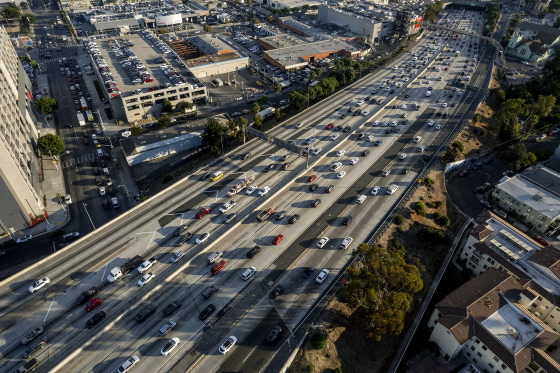
Washington The Supreme Court announced Friday that it will consider a case pertaining to California’s authority to establish its own, frequently stringent automobile emissions regulations, including greenhouse gas reductions, entering a legal battle that has been going on for years.
Particularly since California started regulating greenhouse gases in an attempt to fight climate change, the topic has become contentious and political. California’s regulations have significant influence over automakers because of the magnitude of the California market.
The Environmental Protection Agency’s power to impose national rules under the federal Clean Air Act is at the heart of the case, which may gain more significance when President-elect Donald Trump assumes office in January.
The only issue the court considered was whether or not other commercial interests, such as liquid fuel businesses, had the legal right to file a lawsuit. States that disagreed with the policy filed a separate appeal, but it did not take any action.
The bill permits the EPA to grant the state a waiver from the national requirements so that it can implement its own, acknowledging California’s longstanding role in emissions regulation.
The first Trump administration attempted to reverse the Obama administration’s decision to grant California a waiver to control greenhouse gas tailpipe emissions. Following Joe Biden’s election, his government once more granted California the flexibility it desired.
2012 saw the adoption of the underlying California regulation. It mandates that each manufacturer sell a specific quantity of zero-emission cars and establishes guidelines to control greenhouse gas emissions. By 2035, the state hopes that all cars and light trucks will be emission-free.
In 2022, the business organizations and 17 Republican states, led by Ohio, filed a lawsuit against the most recent EPA waiver.
Notably, at the lower court, a few automakers supported the EPA. Solicitor General Elizabeth Prelogar noted in court documents that producers are already complying with the state’s requirements.
The waiver, according to the business challengers, “permits California to operate as a quasi-federal regulator on global climate change.”
The states contend that because it treats California differently than other states, the Clean Air Act provision for the veto is unconstitutional.
In April, the EPA won a decision from the U.S. Court of Appeals for the District of Columbia Circuit.
Note: Every piece of content is rigorously reviewed by our team of experienced writers and editors to ensure its accuracy. Our writers use credible sources and adhere to strict fact-checking protocols to verify all claims and data before publication. If an error is identified, we promptly correct it and strive for transparency in all updates, feel free to reach out to us via email. We appreciate your trust and support!
